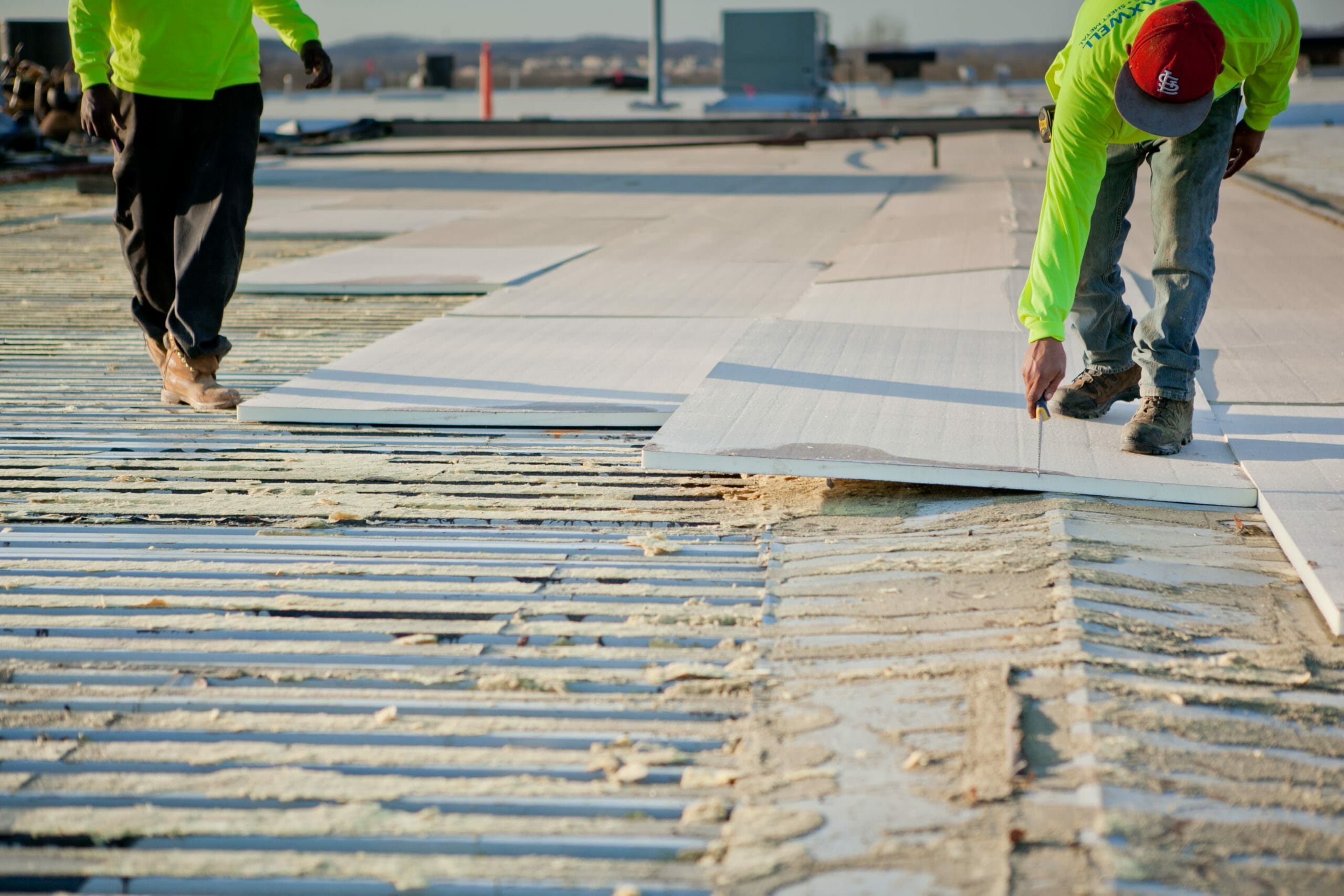Choosing the right type of commercial roofing insulation is one of the most important components of any roofing project. Insulation not only protects your building from extreme temperatures, but it can also provide fire protection. When building managers are planning a re-roofing project, they often focus on the exterior components of the roof. However, what goes underneath the roof can be just as important. So how do you choose which insulation is right for you? Your roofing partner can advise you on this decision, but it may help to have a basic familiarity with your options. This blog will walk you through the three primary types of commercial roofing insulation.
Expanded Polystyrene (EPS)
When polystyrene is made with an expansion process, it spreads out the material in order to cover more area with less material. As a result of this process, expanded polystyrene is cheaper to make but provides less thermal resistance than some other roof insulation options. For the best insulation from the elements, a higher thermal resistance option is recommended.
Polyisocyanurate (ISO)
This closed-cell foam insulation is the most common type of roofing insulation. It’s created by heating up different kinds of synthetic materials that are cooled into a rigid foam substance. This foam is then placed between glass or fiberglass panels. Polyisocyanurate is primarily used on flat roofs, and it is considered a step up from expanded polystyrene (EPS) in terms of its thermal resistance. This material is a good middle-of-the-road option for businesses that want effective insulation but have a tighter budget.
Extruded Polystyrene (XPS)
This type of commercial building roof insulation is made from the same material as expanded polystyrene (EPS), but it is created with a different process. The high-pressure extrusion process packs polystyrene into dense foam panels, providing more thermal and water resistance. This is considered a high-end option and is more expensive than many other types of roof insulation. You typically see this insulation type on “green roofs” or systems where H2O is present.
Regardless of which type of insulation you choose for your building, it’s important to always hire a qualified roofing technician for installation. If you want to learn more about what type of commercial roofing insulation is right for your building, contact Maxwell Roofing & Sheet Metal today. Our team is ready to help with your roofing project.

